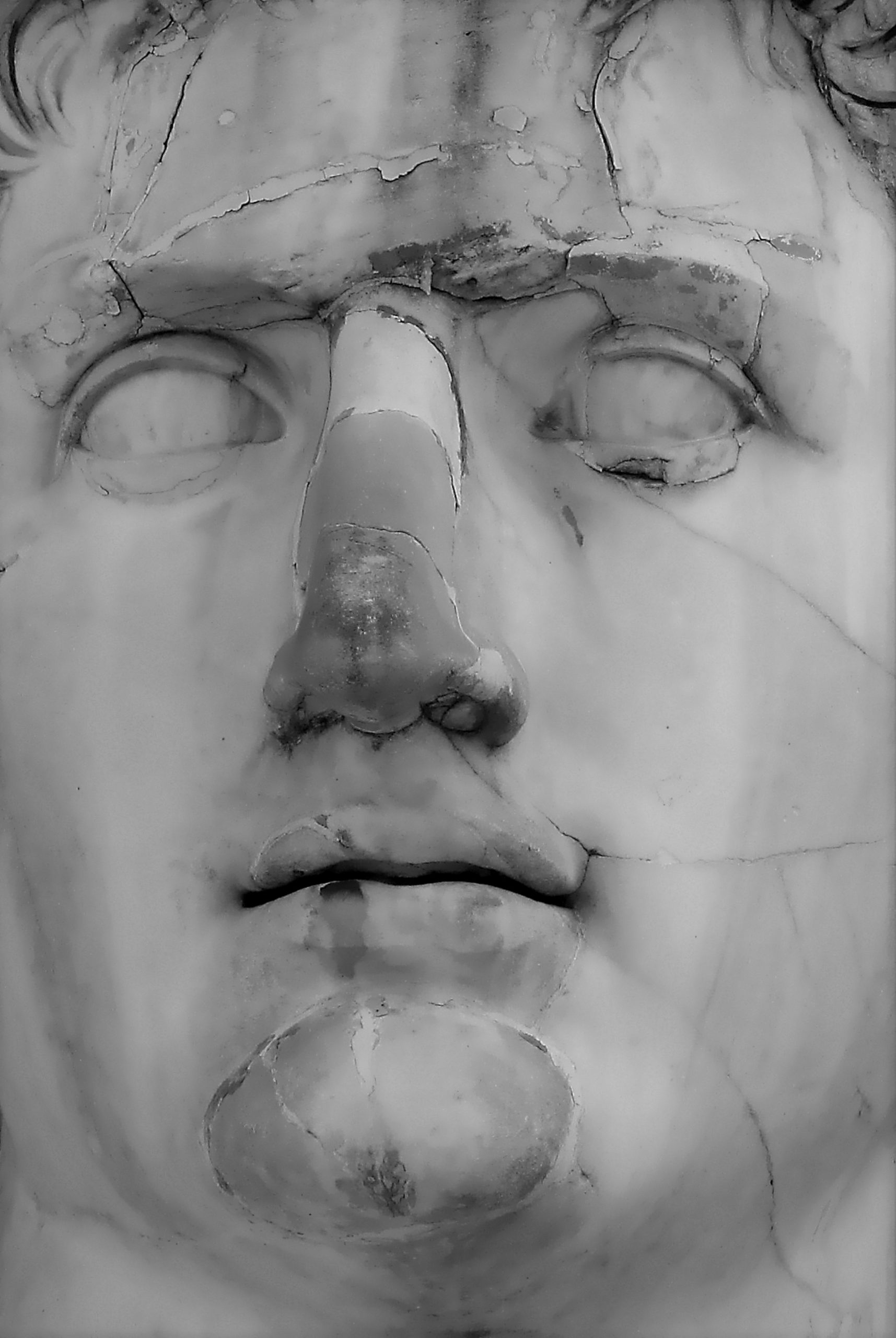
“It’s impossible for a man to learn what he thinks he already knows.” – Epictetus
Quoting one of the great Greek philosophers, pride is something that hinders our progress to learn more about everything, as we won’t feel the need to learn more if we think we know. It may be true that pride in such sense can have detrimental effects, but is all pride bad? What about the pride that we feel for ourselves, with the need of self-preservation in a modern world? Could we find an answer to this ancient question in ancient literature, and how is it interpretable in our modern society?
“It’s impossible for a man to learn what he thinks he already knows.” – Epictetus
Quoting one of the great Greek philosophers, pride is something that hinders our progress to learn more about everything, as we won’t feel the need to learn more if we think we know. It may be true that pride in such sense can have detrimental effects, but is all pride bad? What about the pride that we feel for ourselves, with the need of self-preservation in a modern world? Could we find an answer to this ancient question in ancient literature, and how is it interpretable in our modern society?
Humility has always been considered valuable; with many different historical documents referring to it, such as the Bible; “When pride comes, then comes disgrace, but with humble is wisdom.” (Proverbs 11:2). Humility and pride were important back in the day and are still important in modern society, as it broadens one’s own world view and strengthens their connection with others (Blain, 2022). If humility, the lack of pride, is such an important virtue to be under the spotlight for many millennia, why not go even further back? What do the famous philosophers of the Greek and Roman era have to say about excessive overconfidence, what they call hubris (Merriam-Webster, n.d.)? And can we implement their teachings to modern-day psychology to better understand pride as an emotion?
One of the main ideas of stoicism is that happiness and unhappiness are not connected with material possessions (Long, 1997). This means that what you feel, whether positive or negative, should not be tied to what you own, and separating emotions from material gain in this way is what keeps a Stoic happy. Considering that they do not value materiality, we see many Stoic philosophers argue that a communal lifestyle is ideal, where everything from food to accommodation is shared. This idea of a shared commune dates back to the works of Zeno of Citium, who is considered to be the first Stoic (Mark, 2011). The idea of ‘oikeiosis’ was also prominent in his works, and even though there is no direct translation of this word, we know that Stoics define it as “belonging to oneself”. This idea of “oikeiosis” demonstrates how Stoicism is different from other philosophies: It is the firm belief that because you only ever own yourself, everything that is happening around you should be regarded as neutral. The events around you are neither good, nor bad, but are dependent on your interpretation. So, ultimately what judges and acts on everything is the only thing you own, which is your own mind and soul. All in all, the idea sounds simple enough: You only ever truly own yourself, so you should only feel pride in yourself and not what you own. Then wouldn’t the idea of oikeiosis result in us living a life of eternal poverty especially in a capitalist society like today because all things that are material are not owned by us?
“You only ever truly own yourself, so you should only feel pride in yourself and not what you own.”
This question was also brought up by the famous Aristotle, where in one of his excerpts he is reported saying that “every man likes to have his piece of property” (Long, 1997). He continues to propose a hypothetical where an individual can live with minimal personal property and not feel prideful, while still having something else other than their own body to possess. This argument proposing that individuals will still be humble with material properties goes against the idea of “oikeiosis”. However, if you thought that abandoning material gain to not feel pride is the right way, then you are not a Stoic, you are a Cynic.
Both these philosophies have the same root understanding: Stoics and Cynics agree that the end of life is happiness, which is achieved by “living a life of virtue in accordance with nature” (Reé, 2005). However, the two differ based on their understanding of this core fact; Cynics believe that in order to achieve virtue, all pursuit of material possession should be abandoned, and Stoics think that understanding the harmonious lifestyle comes with understanding the main reason for existence. Defined as “securing one’s own existence” (Reé, 2005), our sole duty in life is to attain knowledge to understand our standing in the grand universe. As the knowledge stems from us, it also gives justification on having the power to accommodate our own nature on universal nature. In their pursuit of understanding nature, Stoics propose that they would naturally attain benefits which also include material wealth. It is with this reasoning that for Stoics “wealth has an instrumental value for ‘living in agreement with nature’, and should be preferred, salva virtue to poverty” (Long & Sedley, 1987, cited by Long, 1997).
Based on this, our only “true” possession is still our own mind, but we are allowed to have limited material possessions that don’t encroach on pride. Though the Stoics like to argue for the sense of property-ownership in accordance with nature, due to the vagueness of this statement, we don’t know how much is enough. We know that there can be too much pride, hubris, and that there couldn’t be life without pride, is there a way to test the limits of “living in agreement with nature”?
“It seems the pursuit of the material promotes the type of pride that the Stoics were worried about in the first place.”
An answer can be found with Tracy and Robins (2007) and their theoretical framework that divides pride in two. According to them, hubristic pride includes a “distorted, self-aggrandized version of self”, while authentic pride focuses on specific accomplishments rather than the self. They report significant findings on pride being composed of two clusters, justifying the presence of authentic and hubristic pride. To see whether this is also correlated with material possessions, Watson (2015) conducted research on the relationship between materialism and self-conscious emotions such as shame, guilt, and pride. He used the same framework as Tracy and Robins (2007) in this experiment. By using a questionnaire battery on a sample of university students, the results suggested that hubristic pride is correlated with non-generosity, envy, success, centrality, and happiness. These variables also successfully predicted hubristic pride behavior. It seems the pursuit of the material promotes the type of pride that the Stoics were worried about in the first place. If we were to live in accordance with nature, we can still feel authentic pride but we should stay away from hubristic pride.
All in all, though the Stoic philosophy is famous for its humility and non-material perspective, it still has traces of materialism through the question on property ownership. A life devoid of pride is impossible, thus this paradox undermines their philosophy of “oikeiosis”, and their explanation of living in accordance with nature remains vague. By only studying what pride encompasses, we were allowed to find better explanations for pride and to justify our feelings better. However, there still remains much to discover: if someone scores highly on hubristic pride, does that mean they will remain that way? Are there any changes to the perception of pride over time? Testing the limits of nature is what has pushed science this far, and I believe there is still much to discover. <<
References
– What Does the Bible Say About Humility? (n.d.). 100 Bible verses about humility. Retrieved December 7, 2022, from https://www.openbible.info/topics/humility
– American Bible Society. (1986). The holy bible: Containing the old and new testaments translated out of the original tongues and with the former translations diligently compared & revised.
– Baier, A. (1978). Hume’s analysis of Pride. The Journal of Philosophy, 75(1), 27. https://doi.org/10.2307/2025832
– Blain, T. (2022, April 13). Why is it important to stay humble? Verywell Mind. Retrieved December 26, 2022, from https://www.verywellmind.com/why-is-it-important-to-be-humble-5223266#:~:text=Humility%20helps%20one%20extend%20more,with%20the%20feelings%20of%20others.
– Fischer, J. (2020). Why are you proud of that? Cognitivism about ‘‘Possessive’’ emotions. Southwest Philosophy Review, 36(2), 87–104. https://doi.org/10.5840/swphilreview202036240
– Long, A. A. (1997). Stoic philosophers on persons, property-ownership and community. Bulletin of the Institute of Classical Studies. Supplement, 13-31.
– Mark, J. J. (2022, December 12). Zeno of Citium. World History Encyclopedia. Retrieved December 13, 2022, from https://www.worldhistory.org/Zeno_of_Citium/
– Merriam-Webster. (n.d.). Hubris. In Merriam-Webster.com dictionary. Retrieved December 13, 2022, from https://www.merriam-webster.com/dictionary/hubris
– Reé, J., & Urmson, J. O. (Eds.). (2005). The Concise Encyclopedia for Western Philosophy (3rd ed.). Routledge.
– Top 25 quotes by Epictetus (of 467): A-Z quotes. A. (n.d.). Retrieved December 7, 2022, from https://www.azquotes.com/author/4528-Epictetus
– Tracy, J. L., & Robins, R. W. (2007). The Psychological Structure of Pride: A Tale of two facets. Journal of Personality and Social Psychology, 92(3), 506–525. https://doi.org/10.1037/0022-3514.92.3.506
– Watson, D. C. (2015). Self-conscious emotions and materialism. Imagination, Cognition and Personality, 35(2), 190–210. https://doi.org/10.1177/0276236615587492
Humility has always been considered valuable; with many different historical documents referring to it, such as the Bible; “When pride comes, then comes disgrace, but with humble is wisdom.” (Proverbs 11:2). Humility and pride were important back in the day and are still important in modern society, as it broadens one’s own world view and strengthens their connection with others (Blain, 2022). If humility, the lack of pride, is such an important virtue to be under the spotlight for many millennia, why not go even further back? What do the famous philosophers of the Greek and Roman era have to say about excessive overconfidence, what they call hubris (Merriam-Webster, n.d.)? And can we implement their teachings to modern-day psychology to better understand pride as an emotion?
One of the main ideas of stoicism is that happiness and unhappiness are not connected with material possessions (Long, 1997). This means that what you feel, whether positive or negative, should not be tied to what you own, and separating emotions from material gain in this way is what keeps a Stoic happy. Considering that they do not value materiality, we see many Stoic philosophers argue that a communal lifestyle is ideal, where everything from food to accommodation is shared. This idea of a shared commune dates back to the works of Zeno of Citium, who is considered to be the first Stoic (Mark, 2011). The idea of ‘oikeiosis’ was also prominent in his works, and even though there is no direct translation of this word, we know that Stoics define it as “belonging to oneself”. This idea of “oikeiosis” demonstrates how Stoicism is different from other philosophies: It is the firm belief that because you only ever own yourself, everything that is happening around you should be regarded as neutral. The events around you are neither good, nor bad, but are dependent on your interpretation. So, ultimately what judges and acts on everything is the only thing you own, which is your own mind and soul. All in all, the idea sounds simple enough: You only ever truly own yourself, so you should only feel pride in yourself and not what you own. Then wouldn’t the idea of oikeiosis result in us living a life of eternal poverty especially in a capitalist society like today because all things that are material are not owned by us?
“You only ever truly own yourself, so you should only feel pride in yourself and not what you own.”
This question was also brought up by the famous Aristotle, where in one of his excerpts he is reported saying that “every man likes to have his piece of property” (Long, 1997). He continues to propose a hypothetical where an individual can live with minimal personal property and not feel prideful, while still having something else other than their own body to possess. This argument proposing that individuals will still be humble with material properties goes against the idea of “oikeiosis”. However, if you thought that abandoning material gain to not feel pride is the right way, then you are not a Stoic, you are a Cynic.
Both these philosophies have the same root understanding: Stoics and Cynics agree that the end of life is happiness, which is achieved by “living a life of virtue in accordance with nature” (Reé, 2005). However, the two differ based on their understanding of this core fact; Cynics believe that in order to achieve virtue, all pursuit of material possession should be abandoned, and Stoics think that understanding the harmonious lifestyle comes with understanding the main reason for existence. Defined as “securing one’s own existence” (Reé, 2005), our sole duty in life is to attain knowledge to understand our standing in the grand universe. As the knowledge stems from us, it also gives justification on having the power to accommodate our own nature on universal nature. In their pursuit of understanding nature, Stoics propose that they would naturally attain benefits which also include material wealth. It is with this reasoning that for Stoics “wealth has an instrumental value for ‘living in agreement with nature’, and should be preferred, salva virtue to poverty” (Long & Sedley, 1987, cited by Long, 1997).
Based on this, our only “true” possession is still our own mind, but we are allowed to have limited material possessions that don’t encroach on pride. Though the Stoics like to argue for the sense of property-ownership in accordance with nature, due to the vagueness of this statement, we don’t know how much is enough. We know that there can be too much pride, hubris, and that there couldn’t be life without pride, is there a way to test the limits of “living in agreement with nature”?
“It seems the pursuit of the material promotes the type of pride that the Stoics were worried about in the first place.”
An answer can be found with Tracy and Robins (2007) and their theoretical framework that divides pride in two. According to them, hubristic pride includes a “distorted, self-aggrandized version of self”, while authentic pride focuses on specific accomplishments rather than the self. They report significant findings on pride being composed of two clusters, justifying the presence of authentic and hubristic pride. To see whether this is also correlated with material possessions, Watson (2015) conducted research on the relationship between materialism and self-conscious emotions such as shame, guilt, and pride. He used the same framework as Tracy and Robins (2007) in this experiment. By using a questionnaire battery on a sample of university students, the results suggested that hubristic pride is correlated with non-generosity, envy, success, centrality, and happiness. These variables also successfully predicted hubristic pride behavior. It seems the pursuit of the material promotes the type of pride that the Stoics were worried about in the first place. If we were to live in accordance with nature, we can still feel authentic pride but we should stay away from hubristic pride.
All in all, though the Stoic philosophy is famous for its humility and non-material perspective, it still has traces of materialism through the question on property ownership. A life devoid of pride is impossible, thus this paradox undermines their philosophy of “oikeiosis”, and their explanation of living in accordance with nature remains vague. By only studying what pride encompasses, we were allowed to find better explanations for pride and to justify our feelings better. However, there still remains much to discover: if someone scores highly on hubristic pride, does that mean they will remain that way? Are there any changes to the perception of pride over time? Testing the limits of nature is what has pushed science this far, and I believe there is still much to discover. <<



